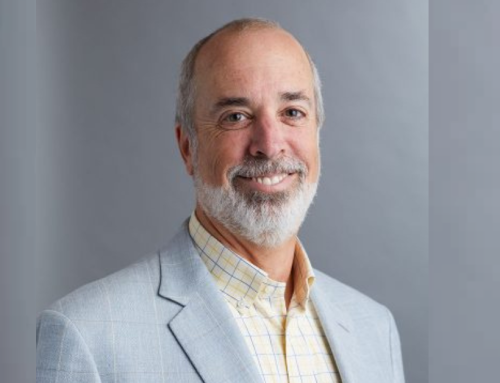The traditional discovery process as practiced by financial advisors is in dire need of upgrading.
Unfortunately, the technology trend toward treating clients as hard data to be parsed and plugged into a financial planning software program is exactly the WRONG direction.
As I wrote in my chapter in Kevin Knull’s excellent book, Exploring Advice, “clients are not data.”
If financial planning was only about the numbers, then we wouldn’t need Certified Financial Planners™. We would just need Certified Software Operators; people who are skilled at monitoring and maintaining the software used by self-directed consumers.
To continue reading the rest of this post, please register below with your email address.
Future of Financial Planning
The future of financial planning is not about AI, machine learning, bots, or virtual reality. Sure, those things may assist the planning process but they will not replace it.
Data and the technology behind producing it should be used to enhance the client experience and deepen the client relationship. Accurate data can be used as facts. But facts don’t move people.
When you add your insight and imbue the facts with emotion, you create emotional data that moves people to take action.
The key to success as a financial advisor going forward will be based on your ability to get your client’s story, to gather their “emotional data,” combine it with hard data, and use that information to create a Life-Centered PlanTM that helps your clients live the best life possible with the money they have.
Ultimately, we all want the same thing out of life. We just want to be “fricking happy.” And money is just one tool to help us be happy but it’s not happiness itself.
Financial advisors who focus on investment management and believe their value lies in “participating in the upside” and “minimizing the downside” while building globally diversified portfolios that are periodically rebalanced and tax aware, will still be in demand.
Unfortunately, the fee they can charge for that service is quickly heading toward zero. Technology is automating that process and it’s best handled by the large incumbents.
The real value offered by a financial advisor lies in facilitating conversations at the intersection of money and life that result in the client taking action and experiencing a happier life. And yes, it can be very messy.
Let’s face it. If you help your clients get better investment returns, but they are no happier in life than when they first started working with you, you’ve failed.
Fiscalosophy Tool
Computers can help people make smarter investment decisions, but they cannot help people live a happier life–and that’s your big advantage as a human.
Using Discovery Process Tools developed by our company, ROL Advisor, financial advisors can engage in meaningful conversations with their clients, understand their most important goals, and guide them on a path to a richer life.
For example, my business partner Mitch Anthony and I have a tool called Fiscalosophy™. This is a Discovery Process Tool that’s part of the ROL Advisor suite and is designed for the discovery phase of working with clients. Advisors use this tool to work collaboratively with their clients to uncover the client’s history, their emotional data, and the experiences that underpin their perspectives on money and life.
In a word, it helps you understand the client’s “story.”
During the process of uncovering your client’s story, you’ll learn the following:
- Their financial perspectives and how they arrived at them.
- Their past experiences and meaningful stories regarding financial issues.
- The beliefs, attitudes, and emotional data that are driving their behavior.
Fiscalosophy simply asks your client to rate how they feel about eight financial and life categories using “bookend” opposing statements.
For example, the first category is debt. The left bookend statement starts at 0 and says, “Debt free.” The right bookend statement ends at 10 and says, “Highly leveraged.” The client then slides the bar between 0 and 10 to indicate their degree of agreement with the bookend statements.
Now, let’s say the client slides the bar to 1, meaning they feel pretty strong about being debt free. Hmm, I bet there’s a story behind that feeling, don’t you?
To elicit that story, you could ask a few questions. “Do you have any debt right now? A mortgage? Credit card debt? Student loan debt? Business loan? Is this idea of being debt-free a relatively new goal or is it something that you’ve always desired? Why is being debt-free important to you?
As your “emotional quotient” skills and your question asking skills improve, you’ll be amazed at the stories you’ll uncover. And, armed with these stories, you now have the “emotional data” you need to put together an emotionally rich Life-Centered PlanTM that considers not just the client’s hard data, but their deepest desires related to living the kind of life that makes them “fricking happy.”
Stock market is another category on the Fiscalosophy Profile. The left bookend statement says, “Scares me” and the right bookend statement says, “Where wealth is formed.”
As your client moves the slider, you can quickly capture how they feel about stock investing. From there, you can ask open-ended questions that will elicit their stories and experiences that formed their beliefs about the market.
The Fiscalosophy Profile contains a total of 8 categories that encompass the range of planning areas including retirement, insurance, investing, and giving. It’s part of a digital suite of Discovery Process Tools from ROL Advisor that augment your capabilities as a financial advisor.
These tools help you facilitate a collaborative conversation with your clients and gain a much deeper understanding of their motivations, beliefs, perspectives, and emotional data about money and life so you can create a much more personalized Life-Centered PlanTM.
To learn more about Life-Centered PlanningTM and using these tools in your practice, click here.
Resources
– Values Clarification Toolkit Click here to download this FREE tool and start living your values.





